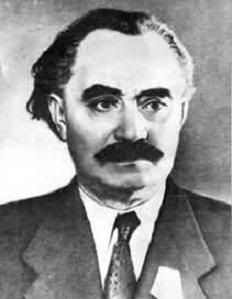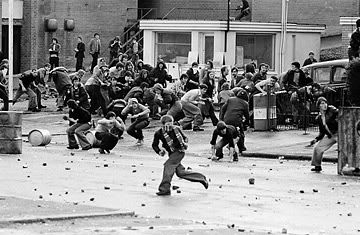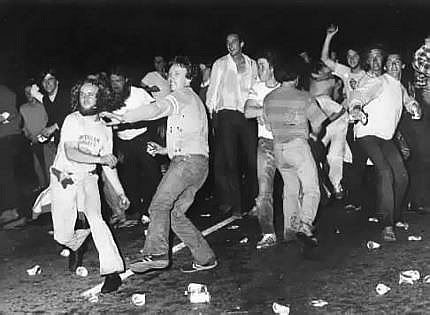Prologue; G. M. Aurelius, 1989, De vita Caesarum: The Reigns of the Emperors from Manuel II to Constantine XIV, (Constantinople) Chapter 16; The Beginnings of Byzsoc:~
As was explained in the previous chapters the victory in the Great War of the jingoistic Axis powers had severe consequences, not just for Byzantium but for all of its allies in the war. In the case of Germany this was the loss of its territories in central Europe as well as East Prussia and its colonies in Africa. Italy had escaped from the war largely unscathed due to its early surrender to the Axis and its supplying and contribution to the Axis campaigns from 1916 onwards. In Byzantium itself the loss of over 75% of the empire along with nearly 50% of its industrial base lead as might be expected to a severe depression in the economy with the number of unemployed reaching by 1921 a figure closing in on 20% of the working population.
These problems were of course laid at the door of the then emperor, Julius VI Augustus. Though he had only taken power following his father’s death just following the war it was the opinion of the people and thus the assembly that the problems of the empire in regards to the current levels of unemployment and the food shortage could be laid squarely at his door. This discontent was made manifest by the rise of many political parties that can only be named as extremists, with the various regions of what was left of the Empire sprouting different groups the parties which sprung to large prominence in the 1922 elections were the Byzantine People’s Party (BPP) and the Byzantine Socialist Front (BSF). While based purely off the names which were presented to the people one might assume that these two parties would be in alignment with each other and opposed to the reining Byzantine Imperial Party (BIP) this was not that case and as such, despite losing almost 30% of its vote split evenly between the two parties the BIP was able to continue to operate as the governmental party by ruling through a minority and the subtle playing off of the BPP and BSF against each other when the BIP wished to pass a bill.
Georgi Dimitov leader of the BPP
Due to their prominence in Byzantine politics of the period it is apt that each party should be analysed in slightly more depth. The Byzantine People’s Party had its routes among the huge industrial parks of the Bulgar Province of the Empire. With their close proximity to the Rumanian state which had been placed under the close protection of the newly formed USSR they were a conduit through which the then leader of the soviets, Lenin, had been able to funnel communist propaganda into the state and it was in the mind of one Georgi Dimitov which the effort of Lenin took fruit. Already a member of parliament in the liberal party of the empire, Georgi became convinced that it was only through the acceptance of communism and a toppling of the monarchy much as had happened in Russia could Byzantium ascend to its former place of power within the world. Preaching to his liberal colleague Georgi was able to convince almost a third of the existing liberal membership of parliament to turn to his new party the BPP when he founded it in 1920. The BPP’s policies were an almost carbon copy of those espoused by the Soviets in Russia, however to allow the party to avoid the censure which the Emperor was constitutionally allowed to place upon any party which could be accused of treason their central tenement was for the Emperor to become the Premier should the BPP grasp power with the title of Premier becoming a hereditary title in the line of current Emperor, however, the Premier would enjoy much more limited powers that the Emperor and the various bureaus proposed much more.
The Byzantine Socialist Front unlike the BPP was a party embodying the views of the people of the Empire without foreign influence affecting their views to another’s benefit. Born as the brainchild of a group of miners within the Serbian Protectorates the BSF was a party of the people and was from its formation in 1918 just a minor player in local politics with just 860 registered members, this was to change following the joining of their cause by Milan Nedic, a man who had served in the Imperial Army during the Russian Campaigns of the Great War and had been honourably discharged as part of the limitations upon the Imperial Army enforced as part of the Treaty of Toulouse. Formerly a colonel on the general staff Nedic had been born in 1877 and was a staunch patriot and nationalist who unlike the majority of people laid the problems of the empire on a corrupt governmental structure who had censured the will and efforts of the emperor and thus leading to the stagnation of the empires economy. His call was to give back to the people of the empire their jobs and a secure supply of food. He vowed that should the BSF come into power it would do all it its power to restore to the Emperor the ability to guide and protect the empire without being guided and controlled by the corrupt members of the current government. This message as might be imagined in a country where the average man could hardly afford to eat and cloth his family allowed for the common man an actual thing to blame within the country that his vote might in fact be able to affect, the level of membership of the party between 1919 when Nedic joined and the 1922 elections increased exponentially with the party securing 27% of the national vote and thus holding 81 seats in the parliament.
Milan Nedic the leader of the BSF.
The years from 1922 until 1926 can be categorised by increasing tensions between the supporters of the BSF and those of the BPP, alongside this is the increasing inability of the minority BIP government to control even the simplest of proposals to the parliament. The first evidence of the increasing tensions between BPP and BSF came with the formation of the Imperial Fists, a group of activists with the BSF which formed into an unofficial militia following a conjectured incident at a BSF gathering in Bulgaria where it was claimed that Communists had attacked the small group with clubs and even caused a pregnant woman to miscarry. The IF as they shall be here on in referred to grew quickly in number until in 1924 a year after their formation and at the onset of the elections of the local authorities they numbered over 5,000 in total. As might be expected in response to the formation of a paramilitary group attached to the BSF the BPP responded in kind with the creation of the ‘Red and Whites’ or RAW as they shall be referred to in later chapters, though not as large as the IF they were better organised with the first commander of the RAW being one Simeon Vlasic who had until that point been an assistant manager at a steel mill.
As such the stage was set in the 1924 local elections for a series of events that would change the face of politics within the Empire totally, with two armed fructuous parties within its boundaries the Empire had come once again under the scrutiny of the former Axis powers and money had been flooding the country to support one of the three main parties with France providing funding to the BSF, Britain to the BIP and the soviets funding the BPP it would only be a matter of time before the kettle that Byzantium had become would boil over.







